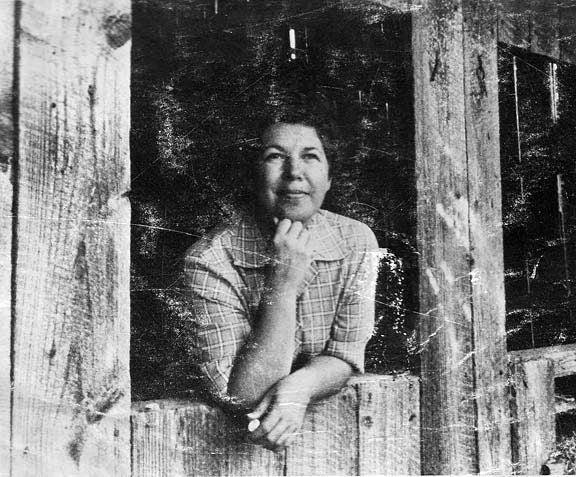Remembering the TroyFest legacy
Published 7:57 pm Friday, April 28, 2023

- File Photo Troy artist Jean Lake was the namesake of the Jean Lake Arts Festival, which began in 1975.
|
Getting your Trinity Audio player ready...
|
TroyFest, the annual premier fine art and craft festival for the Central Alabama Region pays tribute to the late Jean Lake, a noted Troy folk artist whose work is in private collections all across the country.
TroyFest is rooted in the Jean Lake Art Festival, which began in 1975 as an outgrowth the Troy Art Show, and continues today as TroyFest,
Perhaps, many of those who attend TroyFest don’t know about the local artist, whose influence gave birth to the long-running art and craft festival.
Jean Lake was born in Troy and was a natural artist. Her talent was developed in the solitude of her small kitchen on Orange Street. As she painted, family members and friends would often sit beside her, amazed at her ability to paint with such great feeling the rural South that she knew and loved.
If she painted a quilt on the clothesline, she had every little detail on every little square, said Pat Duke, a Troy artist friend.
“Jean was quiet a character. She had a painting that two of her friends wanted. Since they couldn’t both have it, Jean just cut the painting in two and gave each one half,” Duke said. “Jean was like the rest of us who were exhibiting at art shows way back then. We all had families and were all living on shoestrings, just trying to make ends meet. We would be happy if we could make enough money at a show to pay the entry fee, pay the hotel bill and not go home in debt.”
Duke said the icing on the cake following an art show was to have made enough money to buy more art supplies.
“At the time, Jean was the only artist around here who was doing primitive art.” Duke said. “Jean didn’t paint on cardboard boxes and shingles. And she didn’t take a washrag and paint a circle with two eyes on it and call it a dog. She emulated Grandma Moses who really began painting in what is known as the primitive style. Her artwork, like Grandma Moses’ was well thought out and detailed.
“Jean was an outstanding artist. She simply painted what she saw, what she knew and what she loved – the rural South and its people.”
Charles Adams went “off:”to college at Troy State having no idea what he would “be” in life. He soon found the career path he followed for the remainder of his life.
Adams became intrigued by glass art. He learned his “trade” from Ed Walter who was a pioneer in glass art.
Ed Walter took an interest in Adams. He evidently saw something special in him, as did Alice Thornton who was an art teacher and his mentor. Both were great influences in Adams life.
Adams’ opened a small hobby shop soon became a multifaceted stained glass studio that also specialized in ecclesiastical windows.
Adams quickly became the go-to artist for stained glass windows for churches throughout Alabama and neighboring states, especially small rural churches
Growing up in a small, country church made a lasting impression on Adams. His goal was to make stained glass windows that would meet the needs and wants of every small, rural church in the South that wanted them and at an affordable cost.
The most important and lasting Adams said he could so as a glass artist was church windows.
His desire was that the windows would be more than just windows. Maybe, they would do more than add beauty to the sanctuaries, maybe they would offer peace and comfort and hope.
On a cold, late November morning in 2011, flames engulfed the glass and nut shop where Adams had spent most of his working and waking hours, all his adult life. The fire could have brought an end to what his daddy, Sam Adams, had begun 60 years before. Charles Adams had no decision to make. Sam Adams had made the decision for him.
With the encouragement and blessings of his family and the support of friends and the extended Pike County community, Adams Glass and The Nut Shop literally “rose from the ashes.”
Today, Adams Glass remains the go-to place for the highest quality of stained glass art. Adams son, David, has followed in his dad and granddad’s footsteps since he was a toddler. He is carrying on the Adams tradition as a storekeeper and as a stained glass artist. He has mighty big shoes to fill. He would make both Sam and Charles mighty proud.





